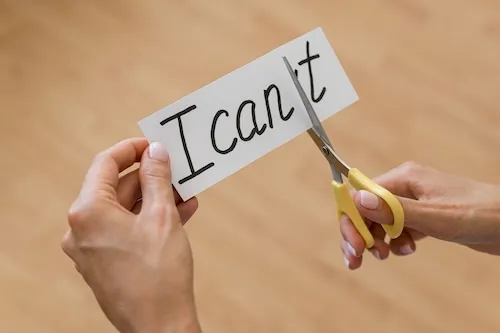Have you ever found yourself hitting a roadblock in life and feeling as though you just can’t bounce back? Whether it’s a failed project, a relationship ending, or a tough financial situation, we all face challenges that knock the wind out of our lungs. It’s part of the human experience!
But humans are also incredibly resilient – able to take life’s curveballs and come back stronger than ever. Resilience is a key trait that can help us not only survive but thrive in the face of adversity. So how do we build this resilience within ourselves?
As a leading mental health platform, AlignUs is dedicated to helping you develop this vital skill. In this comprehensive guide, we’ll explore the foundations of resilience, its scientific basis, and practical strategies to cultivate it. Let’s embark on this transformative journey together, supported by our healthy lifestyle community.
What Is Resilience?
We all know someone who seems unmovable. No matter what life throws their way, they seem to bounce back with ease. And in stressful situations, they seem to relish the challenge, emerging even stronger and more determined.
This is the power of resilience. It’s the ability to adapt, bounce back, and grow from difficult experiences. Resilience is not just about surviving, but thriving in the face of adversity. And it’s a skill that can be learned and cultivated.
Resilience is the ability to adapt, recover, and grow in the face of adversity, challenges, or significant sources of stress. It’s not about avoiding difficulties or powering through them unaffected. Instead, resilience is about facing life’s hurdles head-on and coming out stronger on the other side.
Key Characteristics of Resilient Individuals
- Resilient people are flexible and can adjust their approach when faced with new situations.
- They have the grit to keep going, even when things get tough.
- A positive outlook helps resilient individuals see opportunities in challenges.
- They understand their strengths, weaknesses, and emotional responses.
- Resilient people actively seek solutions rather than dwelling on problems.
- They cultivate and maintain supportive relationships.
Sound enticing? Many feel that they lack the resilience needed to bounce back from difficult situations, but the good news is that resilience can be learned and developed over time. The key is knowing what awaits those who cultivate resilience, and how to build this into your life in practical, consistent ways.
What Are The Benefits of Cultivating a Resilient Life?
Developing resilience can have far-reaching benefits for your mental and emotional well-being. Our healthy lifestyle community has witnessed how resilience can:
- Reduce stress and anxiety
- Improve overall mental health
- Enhance job performance and satisfaction
- Strengthen relationships
- Increase self-esteem and confidence
- Promote better physical health
Talk to a mindset and life coach, and you’ll often find that resilience is a cornerstone of their work. They understand the importance of building resilience and teach others how to do so in order to lead happier, more fulfilling lives.
By learning to manage challenges and setbacks with resilience, you can experience greater levels of success, happiness, and satisfaction in all aspects of your life.
The Science of Resilience: How Our Brains and Bodies Adapt
Understanding the science behind resilience can be empowering. It shows us that resilience isn’t a fixed trait but a skill that can be developed and strengthened over time.
The Neurobiology of Resilience
Research has shown that resilience is associated with specific neurobiological factors:
- Prefrontal Cortex: This area, responsible for complex cognitive behavior and decision-making, plays a crucial role in resilience. People with higher resilience show greater activation in this region when faced with stressors.
- Hippocampus: This part of the brain, involved in memory and learning, tends to be larger in resilient individuals. This may contribute to their ability to learn from and adapt to challenging experiences.
- Amygdala: Resilient individuals often show reduced activity in the amygdala, the brain’s fear center, when confronted with stress.
- Neuroplasticity: The brain’s ability to form new neural connections is key to building resilience. Each time we practice resilient behaviors, we strengthen these pathways.
The Body’s Response to Stress and Resilience
When we encounter stress, our bodies release cortisol and other stress hormones. Chronic stress can lead to a host of health problems. However, resilience can help mitigate these effects:
- Resilient individuals tend to return to baseline cortisol levels more quickly after a stressful event.
- Resilience has been linked to stronger immune responses, potentially due to better stress management.
- Studies have shown that resilient people often have lower blood pressure and reduced risk of cardiovascular disease.
Strategies for Building a Resilient Mindset
Now that we understand what resilience is and how it works in our brains and bodies, let’s explore practical strategies to cultivate it.
Remember, building resilience is a journey, not a destination. It requires consistent practice and patience, along with a partner in the journey who can provide support and accountability.
1. Develop a Growth Mindset
A growth mindset, the belief that abilities and intelligence can be developed, is crucial for resilience. It allows you to view challenges as opportunities for growth rather than insurmountable obstacles.
Reframe your self-talk. Instead of saying “I can’t do this,” try “I can’t do this yet, but I’m learning.” This simple shift in language can make a big difference in building a growth mindset.
2. Practice Mindfulness
Mindfulness is the practice of being present and aware of your thoughts, emotions, and surroundings without judgment. It can help you become more resilient by allowing you to acknowledge and process difficult emotions rather than avoiding or suppressing them.
Take five minutes each day to focus on your breath and observe your thoughts without getting caught up in them. This will help you build the skill of non-judgmental awareness.
3. Set Realistic Goals
Many individuals fail to fully achieve their goals because they set unrealistic expectations for themselves. This can lead to feelings of disappointment and discouragement, making it difficult to stay motivated.
When setting goals, make sure they are specific, measurable, attainable, relevant, and time-bound. By doing so, you will have a clear roadmap to follow and be more likely to succeed. And don’t be afraid to set small goals that are easily achievable, as these can help you build momentum and confidence.
Remember to also regularly review and adjust your goals as needed. Life circumstances and priorities can change, and it’s important to be flexible to stay on track towards achieving your desired outcomes.
4. Cultivate Gratitude
You’d be amazed at just how powerful a simple “thank you” can be – both to others as well as yourself. Practicing gratitude has been shown to improve mental and emotional well-being, reduce stress, and increase overall happiness.
Take a few moments each day to reflect on what you are grateful for in your life. This could be anything from having a supportive family or friends, being able to provide for yourself and loved ones, or simply enjoying the beauty of nature around you.
Incorporating gratitude into your daily routine can also help shift your focus towards the positive aspects of your life rather than dwelling on negative thoughts and emotions.
5. Build Strong Relationships
Social support is a key factor in resilience. Nurture your relationship, and don’t hesitate to reach out when you need support. Exercise: Schedule regular check-ins with friends or family members. Be open about your challenges and listen to theirs.
6. Practice Self-Care
Taking care of your physical and mental health is crucial for building resilience. For instance, when you’re hungry or tired, do you find yourself feeling more easily overwhelmed? By prioritizing self-care, you are better able to handle stress and challenges that come your way.
Make a list of activities that help you relax and rejuvenate. Incorporate at least one into your daily routine. This could be anything from taking a walk in nature to practicing yoga or reading a book.
7. Embrace Failure as a Learning Opportunity
Resilient people view failures as chances to grow and improve. Over time, you may find that throwing yourself into uncertain situations helps you to become more adaptable and able to handle setbacks.
This doesn’t mean that you shouldn’t strive for success, but rather that you should view failure as a valuable learning experience. Ask yourself what went wrong and how you can improve next time.
By reframing failure in this way, you are able to bounce back quicker and continue moving forward towards your goals. Remember, it’s not about avoiding failure altogether, it’s about learning from it and using that knowledge to become stronger.
Creating a Supportive Environment for Resilience
While resilience is an individual quality, it flourishes in a supportive environment. At AlignUs, we are building a positive social media platform that helps people from all walks of life come together and begin to build a community based on support and encouragement.
By surrounding yourself with people who uplift and motivate you, you are more likely to maintain a resilient mindset when faced with challenges.
Build a Strong Support Network
Surround yourself with positive, supportive people who believe in you and encourage your growth. Regularly schedule time with friends and family. Be there for them, and don’t hesitate to lean on them when you need support.
Seek Mentorship
A mentor can provide guidance, perspective, and encouragement as you navigate life’s challenges. Look for mentors in your professional field or personal areas of interest. Many organizations offer formal mentorship programs.
Join Supportive Communities
Being part of a community with shared goals or experiences can provide invaluable support and inspiration. Consider joining our positive social media platform at AlignUs, where you can connect with others on similar journeys of personal growth and resilience.
Create a Positive Physical Environment
Your surroundings can significantly impact your mood and resilience. Declutter your space, add plants or artwork that inspires you, and create a dedicated area for relaxation or meditation.
Limit Exposure to Negative Influences
While it’s important to stay informed, constant exposure to negative news or toxic relationships can drain your resilience.
Set boundaries on your media consumption and distance yourself from relationships that consistently bring you down.
Seek Professional Help When Needed
Sometimes, building resilience requires professional guidance, especially when dealing with trauma or persistent mental health challenges.
Don’t hesitate to reach out to a mental health professional. Our mental health platform at AlignUs can connect you with qualified therapists and mindset and life coaches.
Practice Continuous Learning
Engaging in lifelong learning can boost your problem-solving skills and adaptability, key components of resilience. Tip: Set aside time each week for learning something new, whether it’s through online courses, books, or podcasts.
Remember, creating a resilience-supporting environment is an ongoing process. Be patient with yourself and celebrate small victories along the way.
Your Journey to Resilience Starts Here
Building resilience is a lifelong journey, but it’s one that can transform your life in profound ways. By understanding the foundations of resilience, harnessing the power of neuroscience, implementing practical strategies, learning from others’ experiences, and creating a supportive environment, you’re well on your way to becoming more resilient.
At AlignUs, we’re committed to supporting you on this journey. Our mental health platform offers a range of resources, from expert-led workshops on resilience-building techniques to a supportive, healthy lifestyle community where you can share experiences and find encouragement.
Remember, resilience isn’t about never falling – it’s about learning how to rise every time you fall. It’s about viewing challenges not as insurmountable obstacles but as opportunities for growth and self-discovery.
Join Us On Our Path To Resilience
Are you ready to embark on your resilience-building journey? Join us at AlignUs today. Our positive social media platform is waiting to welcome you into a community of individuals committed to personal growth and mutual support.
Whether you’re looking for guidance from a mindset and life coach, seeking peer support, or simply want access to cutting-edge resources on resilience and mental well-being, AlignUs is here for you.
Don’t let life’s challenges hold you back. Take the first step towards a more resilient you. Visit us online or download our app to get started. Your journey to a stronger, more adaptable, and more resilient self begins now. Let’s align your inner strength with your true potential – together.




